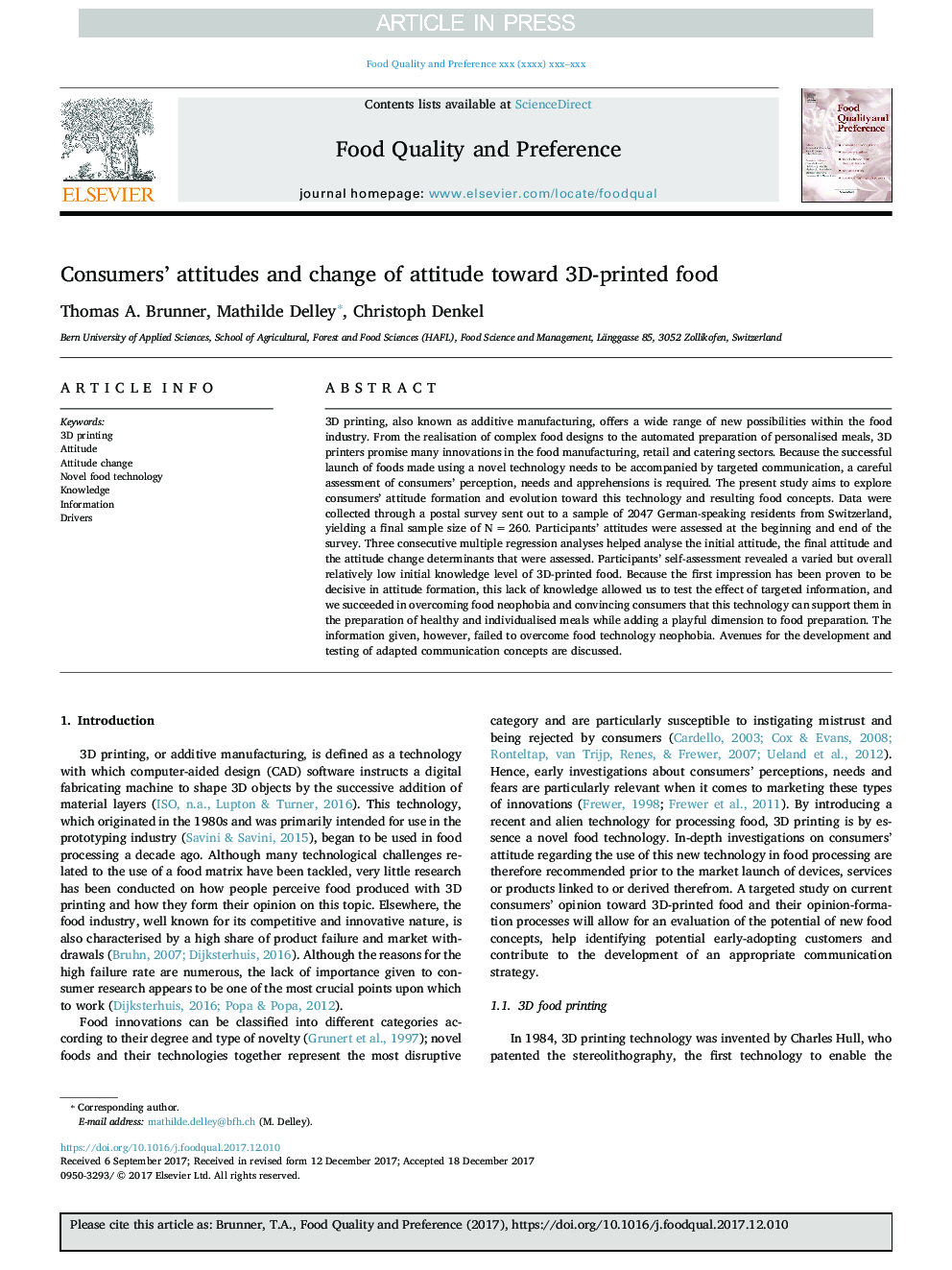| Article ID | Journal | Published Year | Pages | File Type |
|---|---|---|---|---|
| 8838481 | Food Quality and Preference | 2018 | 8 Pages |
Abstract
3D printing, also known as additive manufacturing, offers a wide range of new possibilities within the food industry. From the realisation of complex food designs to the automated preparation of personalised meals, 3D printers promise many innovations in the food manufacturing, retail and catering sectors. Because the successful launch of foods made using a novel technology needs to be accompanied by targeted communication, a careful assessment of consumers' perception, needs and apprehensions is required. The present study aims to explore consumers' attitude formation and evolution toward this technology and resulting food concepts. Data were collected through a postal survey sent out to a sample of 2047 German-speaking residents from Switzerland, yielding a final sample size of Nâ¯=â¯260. Participants' attitudes were assessed at the beginning and end of the survey. Three consecutive multiple regression analyses helped analyse the initial attitude, the final attitude and the attitude change determinants that were assessed. Participants' self-assessment revealed a varied but overall relatively low initial knowledge level of 3D-printed food. Because the first impression has been proven to be decisive in attitude formation, this lack of knowledge allowed us to test the effect of targeted information, and we succeeded in overcoming food neophobia and convincing consumers that this technology can support them in the preparation of healthy and individualised meals while adding a playful dimension to food preparation. The information given, however, failed to overcome food technology neophobia. Avenues for the development and testing of adapted communication concepts are discussed.
Related Topics
Life Sciences
Agricultural and Biological Sciences
Food Science
Authors
Thomas A. Brunner, Mathilde Delley, Christoph Denkel,
